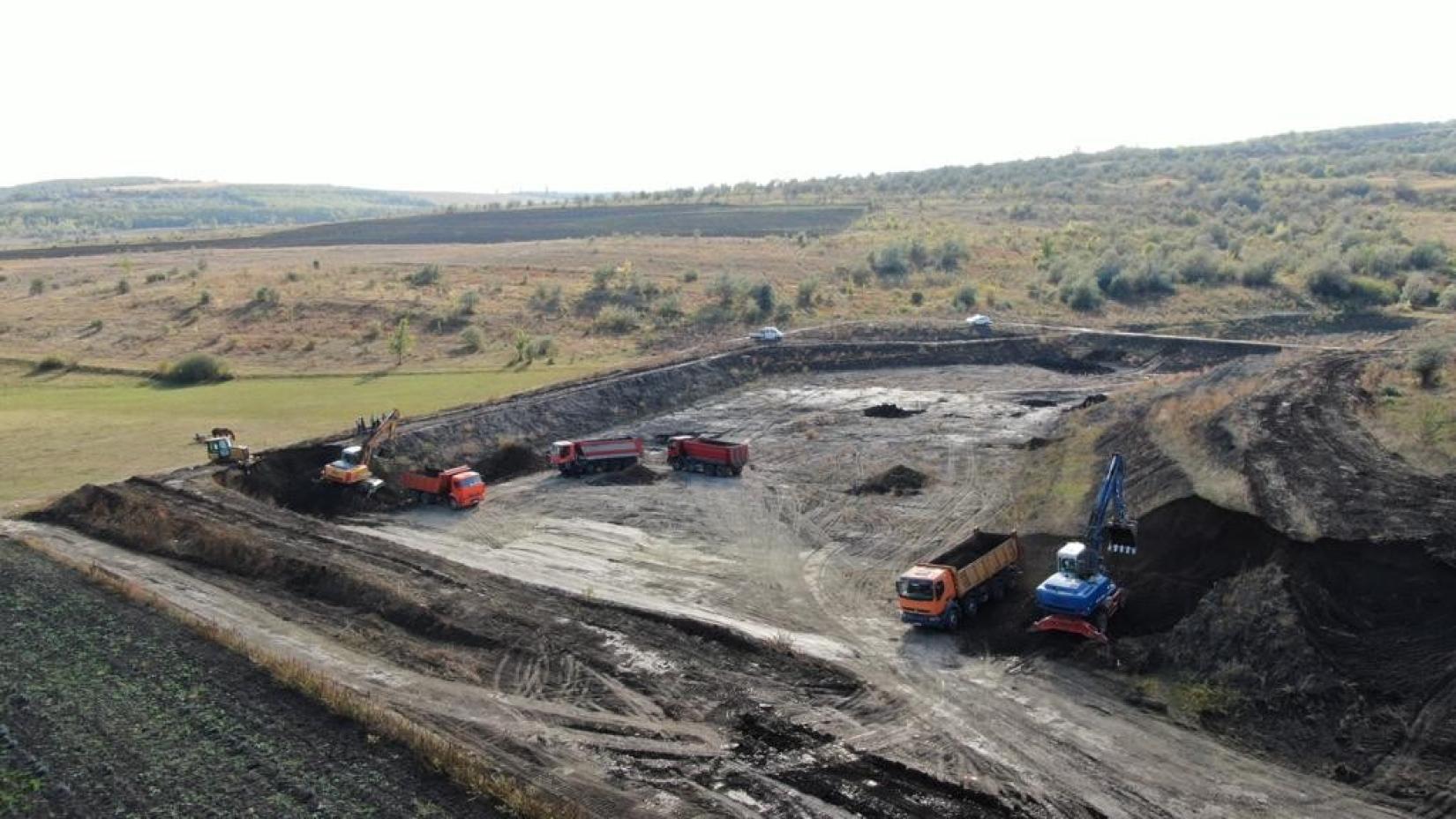Ten basins for rainwater collection and storage will be created with assistance from Austria and UNDP
16 December 2020
10 basins for rainwater collection and storage will be created in Cantemir, Criuleni, Hîncești, Leova and Ungheni districts. Eight basins are estimated to start operations in the middle of summer 2021. Two of them will be functional by the end of this year. These basins represent a solution for adapting the rural communities to climate change and are built with the financial of the Austrian Development Cooperation, offered in the framework of the “Climate change and disaster risks reduction” project, implemented by UNDP.

“With Austria’s support, our partner UNDP will help improve the resilience of rural communities´ livelihoods which have to face the consequences of climate change. Building basins for rainwater collection and storage demonstrates how effective and sustainable climate change adaptation measures can be put into practice,” noted Gunther Zimmer, Head of the Austrian Development Cooperation’s Coordination Office Chisinau.
With financing from Austrian Development Cooperation, at least 10 farmers (men and women) will enhance their livelihoods and access to water for production needs thanks to the newly installed water harvesting basins.
Currently two basins for collecting and storing rainwater, with a capacity of over 25 and 33 thousand cubic meters, are being built in Magurele village in Ungheni district. The owners were selected based on an open competition and will benefit from technical assistance and grants for up to US$30,000 for building the reservoirs.
Constantin Ursu is one of them. He will use the water from the basin to irrigate his crops and thereby increase resilience to climate change, which is expected to result in higher yields. Constantin Ursu has already started to use best agricultural practices as well as innovative and sustainable solutions for developing his business several years ago. He strongly believes that this is the only way to cope with the impacts of climate change and to increase the soil potential.
“Many countries with arid environment use the method of collecting rainwater as a cheap and reliable source of clean water, as rainwater has low level of salinity. Even during the periods with low level of precipitations, enough water is collected for growing agricultural crops. Besides, collecting rainwater decreases the demand for well water, allowing for the level of underground water not to get depleted. Environmentally friendly materials such as geo-membrane is used for building these basins,” said Constantin Ursu.
Overall, 50 farmers will benefit from training and workshops to better understand climate change, expand their knowledge on how to adapt to it and make use of natural resources in a sustainable manner.
Moldova is exposed to climate change and natural disasters and hazards. Climate modelling anticipates a 16-20% decrease of surface water by 2020. All these factors are expected to result in a decreasing of food production. They will have a negative impact on human health and living standards.
Since 2013, and based on Moldova’s national climate change adaptation strategy, Austria has been supporting projects in Moldova which help put into place priority steps for the country’s climate change adaptation. As a result, Moldova’s sectors most affected by climate change, such as agriculture, forestry, water resources management and energy, have developed specific adaptation plans or have incorporated adaptation measures into existing plans.


